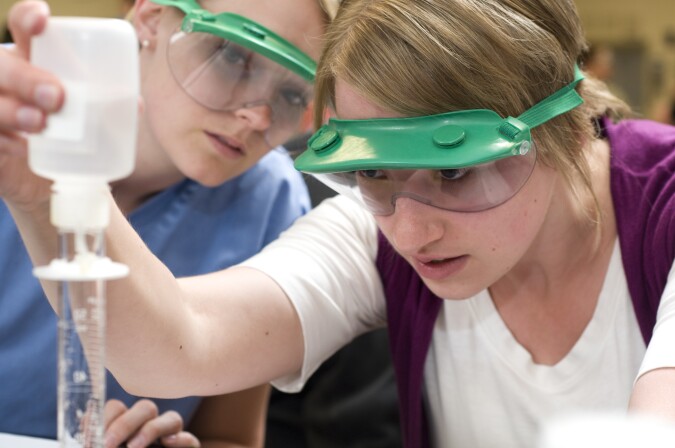
Create Opportunities
We offer students a solid foundation in both classical and modern physics. Chemistry emphasis students take an additional 12 credits in chemistry. Students gain valuable experience in the lab, and learn all the important components of physics. Their unique skill set and knowledge base will make them extremely marketable.
Faculty are always on hand to help guide students in class and on campus. Our courses are designed for meaningful connections, helping students get to know the faculty personally. Students will also have the chance to be mentored by a faculty member to help them find the most rewarding career path for them.
Faculty are always on hand to help guide students in class and on campus. Our courses are designed for meaningful connections, helping students get to know the faculty personally. Students will also have the chance to be mentored by a faculty member to help them find the most rewarding career path for them.
"The physics department is warm and welcoming. There have been countless times when I'm known personally by the professors, and they stop and talk about what is going on in life. We are more than just people in the program–we are individuals and they recognize that."
KATHERINE G.,
BYU-I GRADUATE
Highlighted Career Paths
Graduates with a degree in Physics with an emphasis in Chemistry have a wide array of rewarding careers before them. Check out some of the top careers students get with this degree or explore more career options in I-Plan.
Physical Chemist
Physical chemistry is the study of the physical and fundamental basis of chemical systems and processes. In particular, the energetics and dynamics of such systems and processes are of interest to physical chemists. Important areas of study include chemical thermodynamics, chemical kinetics, electrochemistry, statistical mechanics, spectroscopy, and more recently, astrochemistry.
Material Scientist
Material Science is devoted to the study and development of new materials that can be used in a wide variety of areas. These materials include composites, ceramics, metals, and semiconductors.
Chemical Engineer
Chemical engineering is a branch of engineering that uses principles of chemistry, physics, mathematics, and economics to efficiently use, produce, transform, and transport chemicals, materials, and energy. A chemical engineer designs large-scale processes that convert chemicals, raw materials, living cells, microorganisms, and energy into useful forms and products.
Getting Started in this degree
If you are interested in Physics and Chemistry, start with one of the following major-specific courses






